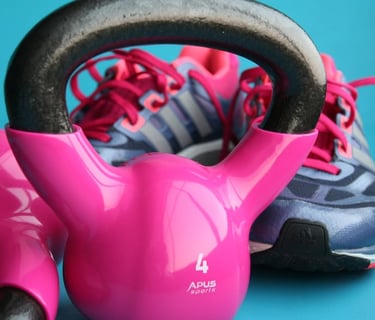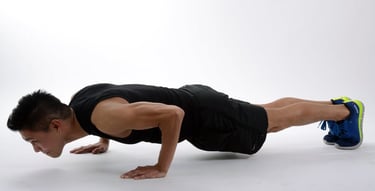What does your instructor know?
Melody
2/26/2017
With editing by Nancy Korf, certified in personal training, yoga, and MELT; formerly certified group exercise instructor
Finding a fitness instructor that you like requires a match of personality, music, and format. You may discover a class that feels perfect… but what kind of fitness advice should you take from your group exercise instructor? Should you try to match their form (how their body looks doing certain moves)?
Of course, you may think, they’re the instructor! Alas, the answer is not so simple. (But you can skip to the end for the short version.)


Licensure in a specific format
Sometimes, all it takes to become a fitness instructor is the purchase of the right to use a company trademark. Zumba® instructors, for example, are licensed. We attended a day-long training (a weekend-long training in some countries) and received a license to teach Zumba classes.
Part of the reasoning here is that the market will determine which instructors are successful. The Zumba Home Office frequently updates trainings for safety, and the risk of serious injury is purported to be less in cardio classes than in many other formats, so potential instructors aren’t tested before their neon tassels are unleashed into the world.
You can generally trust Zumba instructors to enjoy Zumba, but whether they are demonstrating good form or leading an effective class depends how much additional education—whether within the realm of Zumba or within the realm of fitness in general—the instructor pursues.
Certification in a specific format
The next level up from licensure in specific formats is certification in certain formats. The difficulty of gaining certifications varies.
For Turbo Kick, there was a very simple test on what we’d learned at the end of the day-long training. For some other formats, like BollyX, instructors need to submit video of themselves teaching the format, and they are evaluated by experts in that format to determine whether they pass and can begin teaching in earnest.
You can trust these instructors to have good enough form in that specific program, as determined by a master trainer, to have passed a test at some point. But you can only assume that the instructor is as safe as the underlying program, which may not necessarily follow general safety guidelines.


Group exercise and personal training certifications
Next come nationally recognized exercise certifications: AFAA, ACE, NASM, ACSM, to name a few. The difficulty of these programs varies.
All certifications require a written exam, whether online or proctored. (Some certifications include live “practical” exams where candidates are required to demonstrate their teaching skills and understanding of body mechanics and program design. However, practical exams are no longer the norm.) After passing a certification exam, in order to maintain the certification, an instructor is required to obtain some amount of continuing education credits periodically.
Group exercise certifications take significantly less time and effort to acquire than personal training certifications. Note, however, that what’s safe for a single personal training client may not be safe for an entire class of people. It’s important for instructors to have the appropriate certification for what they’re teaching.
Some programs and some gyms require instructors to have a certification before they can teach group exercise, which is a good practice; ask your gym what certification(s) they require of their employees.
You can trust instructors certified in group exercise to have some knowledge in good form and putting together safe classes; instructors certified in personal training are devoted not only to form and safety but also to effectiveness of exercises for specific populations. In the proper context (e.g., generally not without being asked [and, usually, paid] to do so), personal trainers can also evaluate a specific person’s form and strengths and offer suggestions.


Academic degrees
Beyond certification comes a degree. It probably goes without saying that a degree in something like exercise science is an impressive qualification with much more than a single test acting as a gatekeeper.
You can trust degree-holders to have devoted years of study and thought to the field, but how much continuous and ongoing education the instructor seeks out will vary.
CPR/AED and First Aid certification
Every instructor should, in my humble opinion, hold a current CPR/AED certification (bonus for First Aid training as well) if they are leading an exercise class. If someone has a group exercise certification, chances are high that they are CPR/AED certified as well.
Not all gyms require this of their instructors, and of course most independent instructors don’t have such requirements either. If you’re concerned, it’s worth asking whether your instructor is CPR certified.


TL;DR
Unless you know and trust your instructor’s certifications, level of education, and commitment to keeping their knowledge current, I recommend seeking a second opinion if they give you specific advice or if you feel weird matching their form. You’re safest trusting a personal trainer (I’m not one!) or someone with a degree in exercise science, and that goes for the authors of internet articles, too.
Plus: Take your own individual needs and your body’s history into consideration, and always question if you’re not sure why an instructor is recommending you do something different.
And finally, please do find out whether your instructor is certified in CPR; you deserve nothing less!
This site is owned and operated by Melody Nova, a licensed ZIN™ member. See my ZIN profile at the Zumba website.
Zumba®, Zumba Gold®, and the Zumba Fitness logos are trademarks of Zumba Fitness, LLC, used under license.